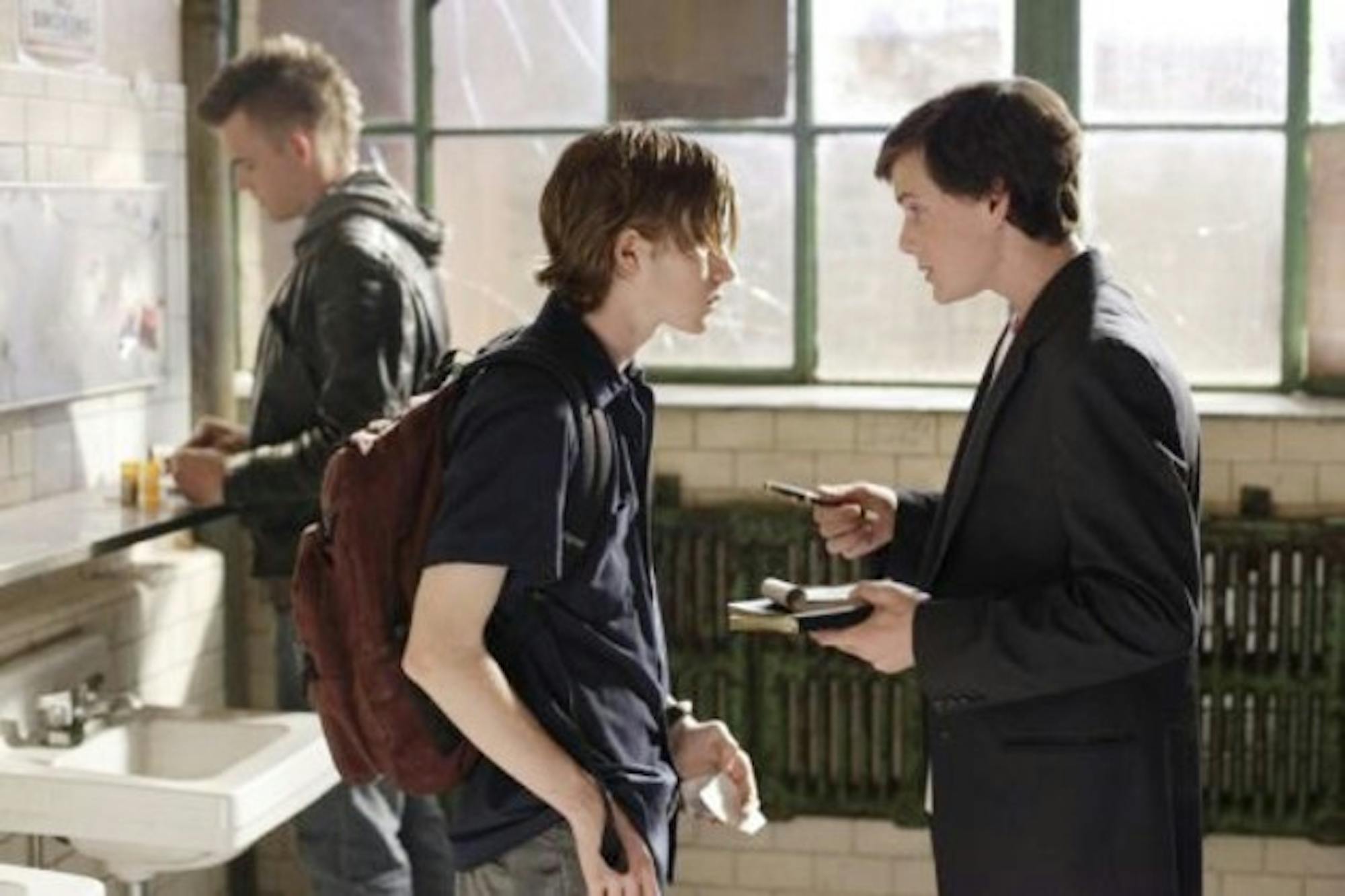Charlie, it seems, is not cut out for the rigors of public school. When he shows up on the first day wearing a suit and tie, his classmates mistake him for a teacher. When a resident bully asks about his briefcase, Charlie politely corrects him: "Actually, I believe it's an attache case." Relentless beatings immediately ensue. Things aren't much better back home: With his father out of the picture, Charlie has been left to look after his rich floozy of a mom (Hope Davis), who pops pills and guzzles chardonnay with alarming enthusiasm.
What follows is a plot contrivance of such magnificent proportions that it demands acceptance. Desperate for popularity, Charlie appoints himself the high school's resident psychiatrist, and begins to operate a clandestine pharmacy from inside the boys' restroom. He listens attentively to the neuroses of his fellow classmates, then dispenses assorted psychotropic medications supplied by his unwitting psychiatrist. Word quickly spreads of Charlie's pharmaceutical genius, and his social stock skyrockets accordingly.
This might be a good time to mention that "Charlie Bartlett" is intended not as a cautionary drama so much as a free-spirited high school comedy -- sort of a "Ferris Bueller's Day Off"(1986) for the Ritalin generation. Indeed, the film's faux-anthropological study of youth culture owes a knowing debt to the teen comedies of the 1980s. There's even the requisite killjoy principal, this time Robert Downey Jr. as a man who has given up his pedagogical ideals for a lazy, booze-fueled existence. Like most of the other characters in the movie, he's a loveable screw-up in need of a hug.
"Charlie Bartlett" is clearly intended as a comic assault on our increasingly over-medicated society -- everyone from the principal on down struggles with some flavor of substance abuse -- but the satire feels too conscious. When a teenager turns to the camera and asks rhetorically "How can I ever hope to turn out remotely functional?" you can feel the director's elbow in your ribs.
The film's more effective moments come when Poll and screenwriter Gustin Nash abandon pretension and embrace the casual absurdity of their premise. There's something mordantly entertaining about the sight of a sweet-faced kid like Charlie peddling Xanax out of a bathroom stall. I appreciated the film's audacity, and I was hopeful that Charlie might go on to found a lucrative self-help empire, like some pipsqueak Dr. Phil.
Sadly, it was not to be. When one of Charlie's patients overdoses on sedatives, the film turns from a rollicking comedy into a sermonizing parable about the folly of substance abuse. Which is fine, I guess, but wouldn't "Charlie Bartlett" have been a braver film if Poll had the nerve to stick by his anti-establishment ethos?
There has been a growing trend in recent American comedies, beginning with the moralistic raunch of Judd Apatow, to feature badly behaved characters who grow up and learn a lesson by the time the credits roll. Poll, who was the executive producer on Apatow's "The 40-Year-Old Virgin"(2005), lacks the latter's appetite for lewd humor (Charlie's sole sexual encounter is summarized in a blushing 10-second montage), but his film is still too bold and innovative to warrant its preachy conclusion.
Still, "Charlie Bartlett" manages to rise above its moralizing finale, thanks to an ebullient first act, an amusing screenplay and the seemingly limitless talents of its leading man. Anton Yelchin has a kind, guileless smile that seems to radiate likeability; his droll performance occasionally takes flight into moments of inspired whimsy. Ten minutes into the film, Yelchin unleashes a bizarre Truman Capote impersonation for no particular reason, then snaps back to sedation without missing a beat. It's an effortlessly charismatic performance and you can feel the rest of the film straining to catch up. The result is a slight but engaging portrait of high school neurosis, neither a classic nor a bore.




![HONEYJOON_[Ines Gowland]_4.PNG](https://snworksceo.imgix.net/drt/7af2efc8-1bd1-4001-b754-e2718ce663b8.sized-1000x1000.PNG?w=1500&ar=16%3A9&fit=crop&crop=faces&facepad=3&auto=format)